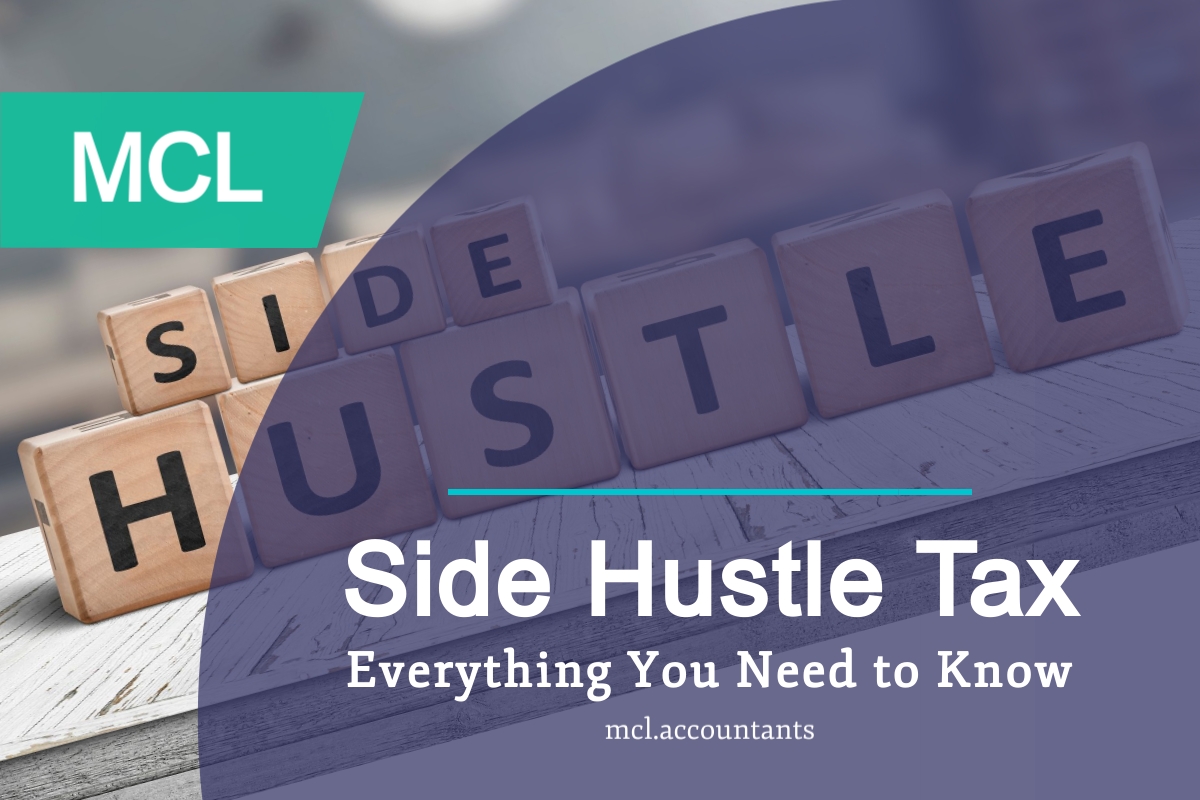Side Hustle Tax: Everything You Need to Know
06/01/2024 - 5 minutes readSide Hustle Tax is not a “new tax” that has been introduced for those selling goods and services online.
Side Hustle Tax refers to the new rules from 1 January 2024 which simply mean that online platforms, such as Ebay, Vinted, Uber and Deliveroo, will have to collect and send information to HMRC. They do not create any new tax obligations for individuals.

Online sellers making money from second-hand goods or homeowners who let out their spare rooms are among those who could end up paying tax on their “side-hustle” earnings under a New Year tax clampdown which is commonly referred to as “Side Hustle Tax” in the media these days.
If you have been declaring all of your income from self-employment correctly in your tax returns then you have nothing to worry about!
The new rules from 1 January 2024 make it mandatory for UK-based online platforms to collect information about most people who make money through their platforms and then send this information to both HMRC and the individual themselves on an annual basis.
This will include information such as tax ID, bank account details, as well as the amount and number of transactions made by sellers with sizeable trading activity. It will apply to digital apps and platforms – including website providers to third-party sellers – and cover the sale of goods and services, such as handmade or second-hand clothes and items, alongside taxi hire, food delivery, freelance work, and the letting of short-term accommodation or driveway parking.
HMRC was already allowed to ask online businesses what their sellers were earning but the government has now signed up to new rules via the Organisation for Economic Cooperation and Development (OECD), an international body, as part of worldwide efforts to reduce tax evasion.
However, these new rules do not create any new tax obligations for individuals and the existing rules – about what platform income needs to be declared and who needs to register for a self assessment tax return – have not changed at all.
Selling goods or services
You could be classed as a trader if you sell goods or services. If you’re trading, you’re self-employed.
You’re likely to be trading if you:
- – sell regularly to make a profit
- – make items to sell for profit
- – sell items on a regular basis, either online, at car boot sales or through classified adverts
- – earn commission from selling goods for other people
- – are paid for a service you provide
If you only occasionally sell items or rent out property (for example through auction websites or short-term rental apps), check if you need to tell HMRC about this income.
Contact HMRC for advice if you’re not sure whether you’re trading.
The government says it hopes online platforms will now be treated more like normal businesses, with those using them subject to the same income tax rules as anyone else.
This will allow tax authorities to detect and tackle tax evasion, while also levelling the playing field with how traditional businesses are treated for tax purposes, according to HMRC.
Registering as self-employed
If you’re self-employed, you may need to set up as a sole trader.
If you are required to declare your income and you are not doing so, then you need to take some action to bring your tax affairs up to date. If you have not declared income for previous tax years, you may also need to take action to correct those years. Failure to meet tax obligations, including declaring certain income, can lead to penalties and interest charges.
If you have received a letter from Hmrc about undeclared income then you can use the Digital Disclosure Facility to make a disclosure about undeclared income.
How can MCL Accountants help you comply with your reporting obligations to HMRC for Side Hustle Tax?
Contact MCL Accountants on 01702 593 029 if you would like us to provide you with a quote to act as your agents and assist you with registering your side hustle/business with HMRC or if you need any assistance with the preparation and submission of your business accounts or self-assessment tax returns to HMRC.
- ABOUT
- REQUEST A QUOTE
Ishan provides financial management, taxation and transactional advice to business entities of all sizes. His expert areas include statutory compliance, business taxation, personal tax & transactional processing and systems. Industry sectors include professional services, retail, hospitality and entertaining & media and advertising services.

0 Comments